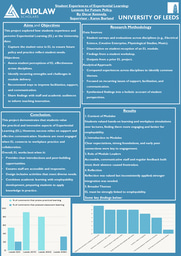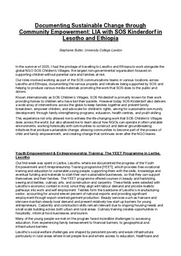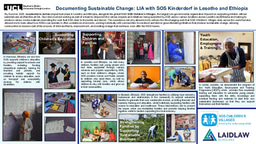Journal Article
Literature Review
Diversity and Inclusion
Education
Ethnic & Racial Studies
Gender Studies
S. Asian Studies
Social Sciences
The Racialisation of Body Hair - Zara Sharif
Hello! Here is my final academic-write up of my summer research on the racialisation of body hair! I have had an incredibly fulfilling learning experience and I am so thankful to The Laidlaw Foundation for this opportunity!
Abstract
The removal of body hair is a women's beauty practice that is treated as normative (Toerien & Wilkinson, 2003), but reveals how control is exerted over women in the construction of submissive, heteronormative, white femininity (Fahs, 2019). Women of colour exist even further from this sphere of acceptable femininity, and so their body hair is more policed and their femininity questioned, yet they are left out of the research (Hope, 1982). Discussion into how these practices are intertwined with racism is limited, but is incredibly significant for the development of Intersectional Feminist Theory and to young women of colour. Alongside an online survey, five in-depth interviews with women of colour were conducted about their changing relationship with their body hair and how this is informed by/informs their racial identity. Whilst their experiences and the findings are incredibly personal, it provides an important and valuable insight into the taken for granted practice of body hair removal and how this affects women of colour, and how adolescent girls develop this fraught relationship. Findings reveal how restrictive Eurocentric ideals of beauty are created and transmitted by peer groups, schools, families and the media to keep women as self-hating consumers (Freedman, 1986) in a constant, unwinnable effort to be beautiful, to the point where its removal becomes akin to self harm. Larger scale, more representative research could give voice to more women of colour and further contribute the theories of Critical Race & Intersectional Feminism, as well as a greater analysis into the role of the media in the creation and reproduction of these norms.





Please sign in
If you are a registered user on Laidlaw Scholars Network, please sign in